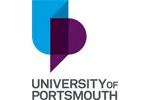

the United Kingdom
University of Portsmouth| The award | How you will study | Study duration | Course start | Domestic course fees | International course fees |
|---|---|---|---|---|---|
| BEng (Hons) | Full-time, Sandwich | 3 - 4 years | September | - | - |
Overview
Electronic engineering powers the world we live in today. From games consoles, smartphones and fitness trackers to life-saving medical systems, cyber security and self-driving cars.
On this Electronic Engineering degree, you’ll learn to design and develop electronic equipment and devices that could have a significant impact on the world. Develop your knowledge of the theory and design of electronics while putting theory into practice in our extensive facilities.
Electronic technology evolves rapidly. Be part of the future on a course that opens doors to a career as a professional electronics engineer.
BEng or MEng?
You can study this course as a 3-year Bachelor's degree (BEng) or a 4-year integrated Master's degree (MEng).
When you finish the BEng course successfully, you'll meet the educational requirements for Incorporated Engineer (IEng) status. Once you've met the work experience requirements for IEng status, you can progress to Chartered Engineer status (CEng) with further study and experience.
The MEng allows you to achieve a Master’s level degree with just one extra year of undergraduate study. When you finish the MEng course successfully, you'll meet the educational requirements for Chartered Engineer status (CEng).
IEng and CEng status demonstrate your expertise and can include benefits such as improved career prospects and earning potential.
Course highlights
Careers and opportunities
The demand for innovation in medical technology devices, and consumer electronics such as mobile phones and televisions is always increasing. In fact, all engineering roles are listed in the UK Government’s 'skills shortage list' – which means engineers are currently in high demand.
So not surprisingly, 90% of our BEng graduates and 95% of our MEng graduates are in work or further study after completing their course.
With electronic engineering professionals in high demand, graduates of our MEng course are earning £39,500 a year on average, 5 years after graduation.
Graduate destinations
Our graduates have worked for companies such as:
What jobs can you do with a electronic engineering degree?
Our graduates now work in roles including:
Other graduates have continued their studies at postgraduate level or set up successful businesses with help and support from the University.
Placement opportunities
After your second year, you can do an optional work placement year to get valuable longer-term work experience in the industry.
You might work with an engineering firm in the UK, or take on a role with a company abroad.
A placement year gives you an advantage over other graduates who may understand theory but won't have the experience of applying their learning to a working environment. We’ll help you secure a work placement that fits your aspirations, and you’ll get mentoring and support throughout the year.
You could also choose to set up your own business, or take a voluntary placement.
Potential roles
Previous students have taken placement roles such as:
Potential destinations
They've completed placements at organisations including:
Career development activity
You'll set up and run a new engineering business as part of your second year study on this course. Do well on this module, and you'll be eligible to apply for a grant from the SENE start-up fund, a pot set up by our School of Energy and Electronic Engineering, and run a business that provides both income and credits toward your degree.
You'll also have access to extracurricular activities, run by the school and by your fellow students, in which you might work on a nationwide drone competition, the Engineers Without Borders Design Challenge, or the Formula Student racing car competition. Our Badges framework gives you a way to demonstrate professional recognition of what you've achieved in and outside your study.
https://www.port.ac.uk/study/undergraduate/undergraduate-fees-and-student-finance
112-120 points from 2 or 3 A levels, or equivalent, to include a relevant subject.
English language proficiency at a minimum of IELTS band 6.0 with no component score below 5.5.
Below are some suggested courses at other providers that you may also be interested in:
Study Abroad Summer Program Summer Course
Osgoode Professional Development, York University
Find out moreWork & Organisational Psychology Master Degree
Erasmus School of Social and Behavioural Sciences (ESSB), Erasmus University Rotterdam
Find out moreFashion Communication Management Master Degree
IIFM | Italian Institute of Fashion Management
Find out moreConsider a Foundation or Pathway course at University of Portsmouth to prepare for your chosen course:
If you do not meet the entry requirements for this course then consider one of these courses from another institution:
There are 529 other courses listed from University of Portsmouth. A selection of these are displayed below:
Join the StudyLink email list and never miss a chance to turn your study abroad dreams into reality!

Find out more about studying in the United Kingdom